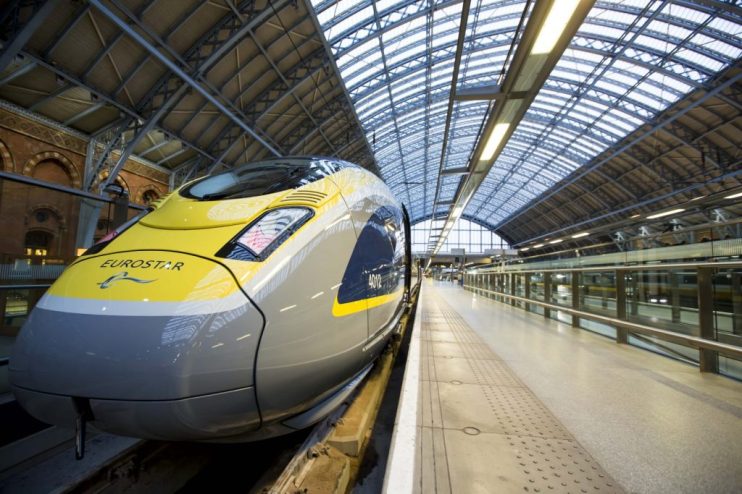Eurostar faces £400m losses after pandemic swerves passenger numbers off track

Eurostar has reported more than £400m pandemic-induced losses and cautioned it faces “material uncertainties” in the future, after Covid travel restrictions derailed passenger numbers for the cross-channel train.
After riding high with a £62.4m profit in 2019 before the pandemic hit, the French majority-owned train operator swung to a dizzying pre-tax loss of £427.8m in the year to December 2020, as lockdowns forced passengers to cancel their trips between London and Paris.
Revenue for the full year to 31 December slumped by 75 per cent to £256m, from £1.03bn a year earlier, as travelled passenger volumes plummeted from 11.1m to 2.5m, and the company was forced to reduce its journeys to just one daily service at the height of the pandemic.
Eurostar’s management focus turned to “securing stability for the business in what is a very turbulent time”, the company said in its latest accounts, and “acted quickly to adapt its cost base and financing to the challenges posed by the pandemic.”
These measures included slashing costs, using the furlough scheme for up to two thirds of its staff, and issuing two refinancings – the most recent in May this year – to keep the company afloat.
Looking ahead, the Eurostar’s board said it is “difficult to predict revenues” as it continues to face “material uncertainties”, with regards to whether the pandemic has triggered lasting changes to business and leisure travel.
But speaking to City AM two weeks ago, CEO Jacques Damas highlighted the company’s more recent figures which showed that business travel was up 62 per cent in the first two weeks of September on the fortnight before, as a gradual loosening of travel restrictions and the return of in-person meetings drove increased passenger numbers.
And Damas said he expected the upward trend to continue in the last three months of the year.
“We will continue to increase our timetable to respond to growing demand from our loyal business travellers and incentivise new ones to travel with us,” Damas said.
“Our immediate priority is working with governments towards simpler rules and tools to streamline and speed up the check in and border process across all of our markets,” he continued.
Eurostar plans to merge with Thalys, the French-Belgian high-speed train operator, by the end of this year to create an environmentally-friendly high-speed rail service.
And Damas is looking forward to a more positive Q4 and 2022, believing Eurostar could well be at the vanguard of lower-carbon travel.
“The green agenda is playing an even more significant role in travel choice and is a key driver for both leisure and business passengers,” he told us.
“As the most sustainable option for short haul international travel, and as we launch our climate train to transport delegates to COP26 in Glasgow, we are committed to making it easier and simpler to travel further by high-speed rail.”